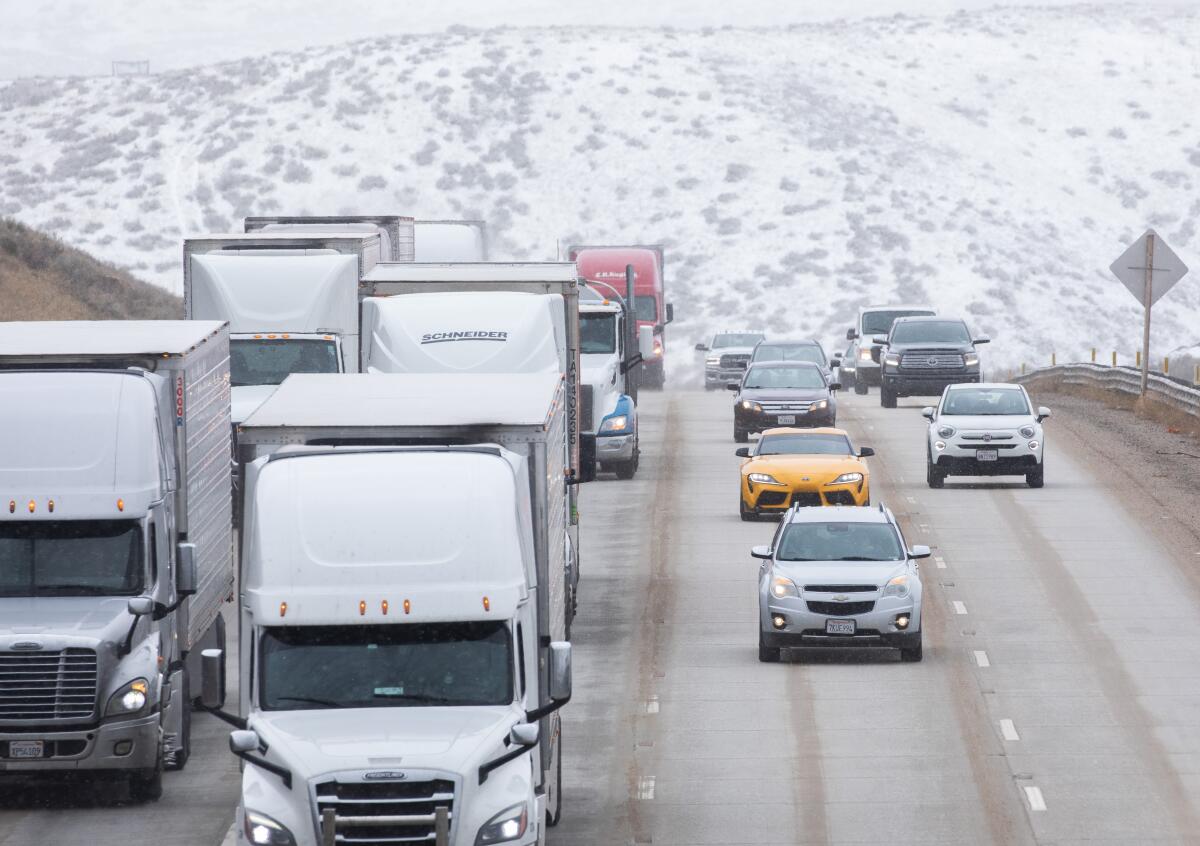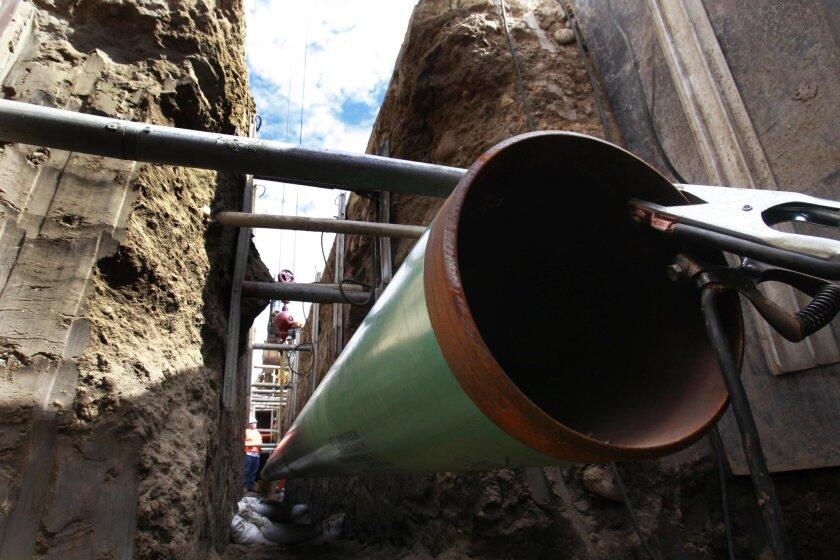Californians, brace for another bill increase: your car insurance

Some California drivers will be getting a nasty surprise when they open their car insurance bills this year.
That’s because California Insurance Commissioner Ricardo Lara approved some big rate hikes in the last six months, ending a long COVID break after insurance companies complained they were losing money and cutting back in the nation’s largest vehicle market. Higher rates for Geico, Mercury and others are just now showing up in insurance renewal letters that customers receive.
And more increases are in the pipeline, consumer advocates say, even as some insurers have yet to refund customers for premium overcharges during the early months of the pandemic when people were driving less and getting into fewer accidents.
“These insurance companies still owe consumers from the COVID era,” said Jamie Court, president of Consumer Watchdog, the Santa Monica nonprofit that sponsored Proposition 103, the 1988 voter initiative that limited how much insurers can charge for auto, home and casualty insurance. “The commissioner should not be granting rate hikes when he still hasn’t been able to compel them to give rebates for the times when we weren’t driving,” Court said.
Californians are paying an average of $2,291 in car insurance premiums this year, up $101 from 2022, according to a Bankrate analysis that found premiums rising nationwide as people drive more miles, drive less safely and wreck increasingly expensive cars.
As tech companies and others slash tens of thousands of jobs, firms are also rethinking new hires and rescinding job offers, upending lives.
Rate increase approvals, which gathered steam in December and January, have been granted to insurers representing more than 20% of the market, according to Consumer Watchdog’s tally. Geico, Mercury and Allstate received 6.9% increases, while some smaller insurers got larger hikes.
An additional 97 premium rate increases have been requested, the consumer group said, ranging from a 4.5% hike to nearly 20%. The most common request is 6.9% because anything larger than that can trigger a public hearing. Some of the biggest names on the pending list include State Farm, Progressive, Farmers and the American Automobile Assn.
Geico, the state’s second-largest auto insurer, after State Farm, got a 6.9% rate increase in December, which will mean a premium boost averaging $125 a year for the company’s 2.1 million policyholders.
Some drivers will be hit harder than others, said Consumer Watchdog attorney Daniel L. Sternberg, particularly those insured by companies that are using a driver’s job and educational background in determining that person’s rate.
Consumer Watchdog in recent years has challenged rate increase filings by Geico, Mercury, AAA and Allstate for charging higher base rates for lower-income workers than for professionals with a college degree.
SoCalGas customers are paying sharply higher January bills because wholesale gas prices have jumped. Yet other parts of the U.S. are seeing prices fall.
Using Mercury as an example, Sternberg said the January approval of a 6.9% increase allows “unfairly discriminatory rates using five separate education- and occupation-based rating tiers which working-class Californians without a professional occupation and advanced degree will pay up to 18% higher premiums.”
The insurance industry says rate increases are overdue.
Insurers in September said California’s auto insurance market was on the brink of a crisis because they were paying out more in claims than they were collecting through premiums in 2022. Geico last year closed California sales storefronts in favor of online sales, and others have talked about slowing growth in the state.
California waited longer than any other state to raise auto premiums after the pandemic eased, said Denni Ritter, a vice president at the American Property Casualty Insurance Assn.
In their return to the roads, California drivers have been driving faster and, increasingly, while intoxicated, Ritter said, leading to accident injuries that are more severe, and they’re wrecking cars that have higher repair costs than in the past.
“So unfortunately, those are causing costs to really skyrocket in the auto insurance realm,” Ritter said, causing a 25% increase in insurance costs in 2022 while premiums grew 4.5%.
The California Department of Financial Protection and Innovation has compiled a searchable collection of complaints about apparent crypto scams.
As for those refunds, Californians are still waiting for about $3.5 billion of the $5.5 billion that Consumer Watchdog estimates policyholders are owed for pandemic-era overcharges.
The matter still hasn’t been fully resolved, say the state’s insurance officials, who argue that rate hike decisions aren’t interfering with unfulfilled rebates.
“These are separate processes,” said Michael Soller, deputy commissioner for communications at the California Department of Insurance. Getting the insurers to give the rebates “is an ongoing process. We sent letters to insurance companies requesting new data. They’re providing that and we’re going through that. So that’s where we are.”
Consumer Watchdog Executive Director Carmen Balber said insurance companies are “nowhere near a crisis.” Drivers getting larger insurance renewal bills should shop around for a better deal, she said.
“California consumers have so many options.”
More to Read
Inside the business of entertainment
The Wide Shot brings you news, analysis and insights on everything from streaming wars to production — and what it all means for the future.
You may occasionally receive promotional content from the Los Angeles Times.













